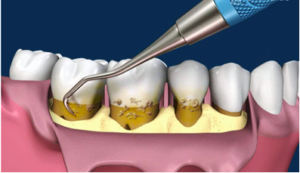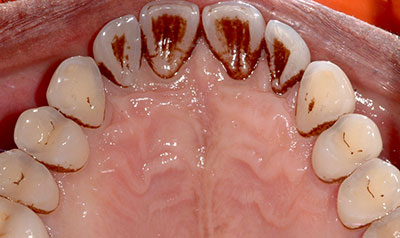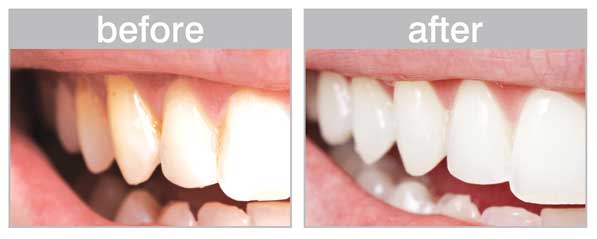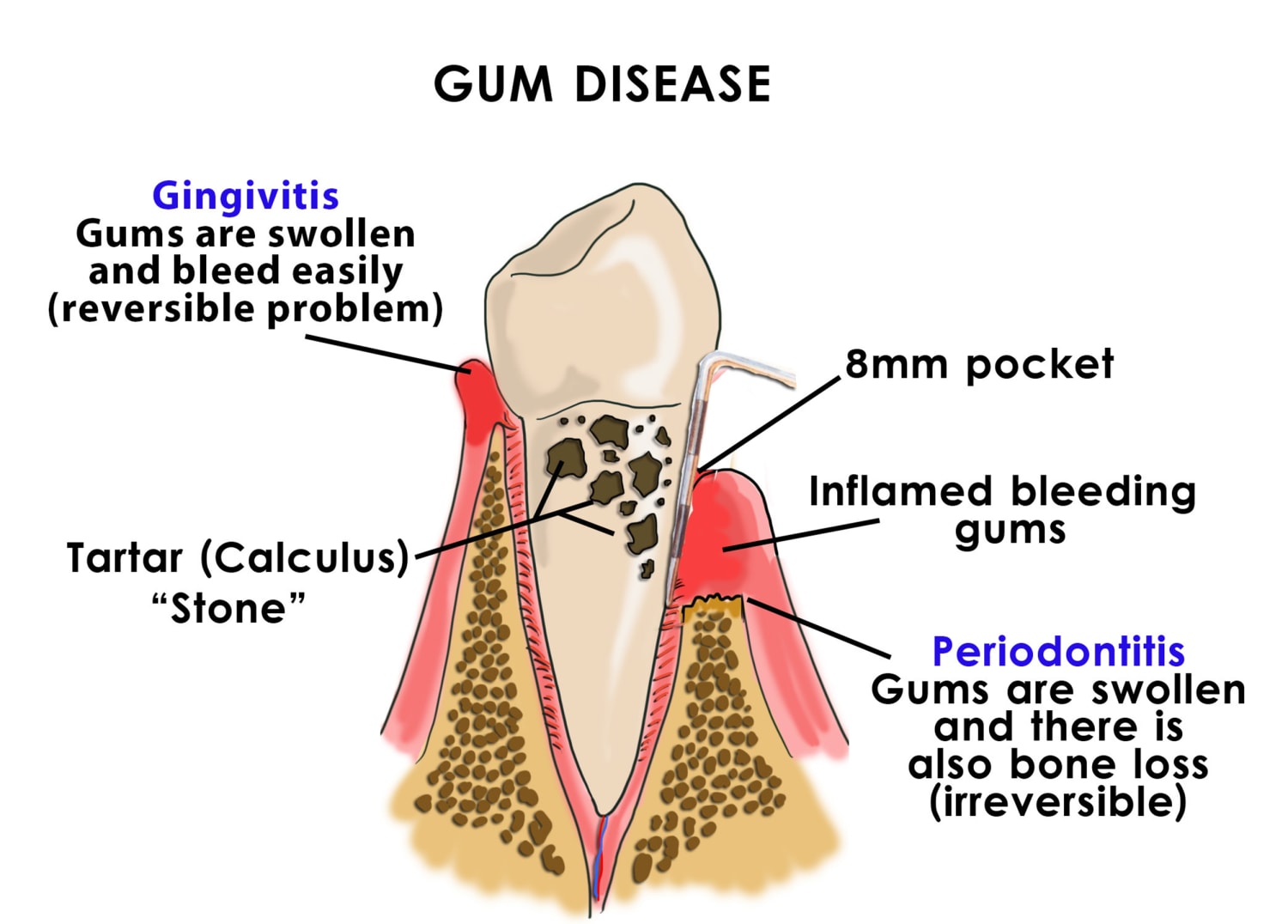What Is A Deep Cleaning At The Dentist

Do You Want to Book Your Deep Cleaning? Contact Sparkle Dental
We hope this article helped you learn more about what happens when you schedule a deep cleaning of teeth. It is not something to be worried about. You only need a trusted dentist. But how can you identify one? If you live in Mt. Sparkle Dental is the best choice for Vernon, Yonkers or New Rochelle residents.
Sparkle Dental believes a perfect smile starts with good gum and tooth health. That’s why we emphasize regular deep cleaning for people with potential cavities or gum diseases. Do you want to book an appointment?
Please contact us immediately to discuss how we can improve your oral care.
Newer Post > < Older Post How to Save a Knocked Out Tooth Having a tooth get knocked out can be a scary experience. Luckily, an emergency dentist in Mount Vernon might be able to save it. Read here to learn what to do Continue reading Dental Erosion: The Truth About Energy Drinks and Your Teeth
Deep Dental Cleaning Vs. Regular Cleaning – Was the Dentist Really Refusing To Clean Your Teeth
What are the conditions under which a dentist will refuse to clean teeth? Because they want to safeguard your health.
This is how it might look: Your normal routine includes brushing your teeth at home. Perhaps you floss everyday. You might notice your teeth appear longer while you are brushing. They might be a bit further apart or slightly shifted. You might have been chewing gum because you were told by your spouse that you had bad breath. The blood might be on your floss, toothbrush or in your sink. You might notice more than just a tiny bit. Maybe you feel some tenderness in your gums, or notice redness or swelling. Perhaps you decide it is time for a checkup at the dentist.
An exam by your dentist or dental hygienist is performed, along with a review of the xrays. It’s possible that you will jump from the chair as they examine your gums. You may be surprised to hear something new or have been told it before.
You might have gum disease. Periodontitis, to be precise.
Your dentist can show you the images that will reveal bone loss as well as the accumulation of calcium. They show you the size of the pockets between your gums and teeth, where the bacteria collect and cause chronic and systemic infection and inflammation immune response. The common treatment is known as scaling and root planeing. They explain the difference between a deep dental cleaning vs a regular cleaning. Deep cleaning requires the use of anesthesia. You will also need to return for follow-up visits in order to ensure that your gums heal properly.
OK, thanks. That’s okay. I will come back to it another day. Do you mind if I have my teeth cleaned so that it’s easy for me to get on with my day? Your dentist then says something that you didn’t expect: “I’m sorry.
What is Periodontitis?
Your dentist should never refuse to clean you teeth. If they want to maintain your health. While this may sound unpleasant, it is going to make periodontitis seem as simple as possible.
Chronic infection is called periodontitis. Periodontitis can be a serious condition. Bacteria have collected in the pockets and spaces below the gum line, around calculus (plaque) that has built up, usually due to infrequent flossing and inadequate oral hygiene. These bacteria release acids which dissolve bone tissue between your teeth and jawbone.
If this condition is not addressed, it can become more serious. This will cause you to lose your teeth and result in jaw bone damage that cannot be repaired or recovered. It’s not our intention to scare you. We’re simply telling the truth. Periodontitis, which is literally a condition where your body attempts to kill itself, can lead to a serious infection. This is not an offer, it is a diagnosis.

How to Prepare for a Deep Cleaning (Root Planning And Scaling). Published July 10, 2014.
Are Deep Cleanings Required?
While plaque is usually visible around the gum line and on teeth, there are many other signs that bacterial buildup may not be immediately apparent. When gum disease is present, bacteria can find their way to the roots of teeth, where regular brushing and flossing cannot reach. Nashville patients may be able to benefit from root planning and scaling at our office. Know what you can expect from deep cleanings before visiting our practice.
Root planing is also known by a deep clean. It removes plaque, tartar, early signs of infection, as well as any debris, from between the root of a tooth and its adjacent gum. If the patient’s gums become infected by gum disease and are unable to pull away, then deep cleanings may be necessary.
Advanced gingivitis is a form of gum disease that affects patients with advanced gum disease. Symptoms include reddening, swelling, bleeding, and inflamed gums. Periodontitis can result in bone loss, further infection, and even permanent disability if it is not addressed. Roots can also become decayed and develop large cavities. This could lead to the need for root canal therapy and crowns. This can be almost entirely avoided if the root canal treatment is done promptly.
What does a deep cleaning entail?
Your cosmetic dentist will examine you if there are signs or symptoms of progressive gum disease. If the infection persists, it is recommended that a deeper cleaning be performed.
You will receive local anesthetic injections to help reduce pain and discomfort.
Scaling tools are used to get rid of plaque and tartar on the root surfaces. This prevents cavities from developing and will also help to keep decay away.
In order to fight disease and promote healing, antibiotics could be used on teeth and gums.
An instrument called a planing device will be used on the tooth to smoothen its surface and decrease the likelihood of bacteria developing.
Houston, Tx Dentist 77008
Dental deep cleaning is a crucial non-surgical procedure for people with early signs of gum disease, such as excessive redness, inflamed gums, excessive teeth sensitivity, swelling, bleeding gums, receding gums, etc. If you have these signs and symptoms of gum disease, you may have gum disease and need gum therapy, also known as dental deep cleaning. The deep tooth cleaning process is best for those with signs and symptoms early in gum disease. It does not work well for people suffering from advanced periodontitis.
Patients are often confused when they hear that they need to have their teeth cleaned. Below are some common questions patients ask us:
Let’s find out what you need to know regarding deep cleaning aftercare.
You can’t do anything after deep tooth cleanings.
How soon can I brush my teeth after a deep cleaning?
Can gums reattach themselves after deep cleaning?
What frequency should deep cleaning occur?
This article will help answer your questions as well as provide information on how to clean and maintain dental teeth. We must mention that gum disease should be treated as soon as possible. Gingivitis, a condition which worsens over time, is chronic. In the early stages of gum disease, a non-surgical procedure called deep cleaning can reverse it. If it isn’t treated quickly, however, you may develop periodontitis. In this case, you will need to undergo invasive surgical procedures.
Sapphire Smiles is one of the best dental clinics in Yale, Houston, for teeth cleaning procedures. We use cutting-edge technologies and technology to find the root cause and cure gum disease. For your convenience, we also offer painless sedation as well as anesthesia. Our dental clinic is located at 2522 Yale St. #210, Houston, TX you may schedule an appointment online or call us at (832) 409-0400.

How do I ask my dentist before undergoing a deep cleaning?
These are questions you should ask your dentist before proceeding with a deep clean.
Can you administer local anesthetic?
Is this a long process?
What time will I require a second deep cleaning?
What are the possible risks involved in a scaling-and root planning dental treatment?
What are the advantages of deep dental cleaning?
What time will my mouth take to heal from the deep cleansing?
To prevent any further periodontal complications, what changes can I make in my daily oral hygiene regimen?
How important is dental deep cleaning?
Sometimes we are asked the question, “Does dental deep cleaning need to be done?”. The answer is yes. The decision regarding if you are a candidate for scaling and root planing should come directly from a trusted dentist who knows your dental history. A dentist can determine whether a deep cleaning is the right choice for you by taking dental xrays or reading your pocket depth. This is an extensive procedure that is best for those with chronic gum disease. You may be wondering what’s the big deal about gum disease?
Move teeth
Over 47 percent of Americans over 30 are affected by chronic periodontal disease. There is no reason to worry and you can get help with your periodontal disease by scaling and root planning.

What Is A Deep Cleaning And How Do I Know If I Need One?
It’s possible to think your dentist is suggesting a deep cleaning. However, a deep cleaning means something very different.
Deep cleaning is a treatment used to treat the area below your roots. If your dentist is recommending this procedure, you’re in danger of serious gum disease, and you need an intervention to prevent it from getting worse.
Norman Coates of Dentistry Optimized, Inver Grove Heights, has performed many deep cleanings in the past. Learn more from Dr. Coates and learn why deep cleaning may be right for you.
What does a deep clean look like?
Centers for Disease Control (CDC) estimates that about half of Americans aged 30 and above have periodontitis. This amounts to almost 65,000,000 Americans. Deep cleaning, also known as gum therapy or root planing and scaling, is designed to keep that number from getting higher.
Regular, two-a-year cleanings of your teeth help to remove any tartar and plaque that may have built up. However, if your dental hygiene is poor or you are predisposed to developing gum disease, plaque and tartar may buildup below the gumline.
This can cause bleeding gums and gingivitis, and ultimately, tooth and bone loss. Deep cleaning involves two parts: scaling the plaque or tartar off your teeth and from infections pockets that may form between your gums, teeth, and gums. The second stage is root planing which involves taking the tartar and debris from your roots.
Depending on your situation, a deep cleaning usually requires at least two visits. Dr. Coates might divide the process into two parts, so that one part of the treatment is completed during your first visit and another during your second.
Do you really need a deep cleaning?
To determine if you need a deep cleaning , your dentist will check the depth of the pockets of bacteria and infection that have formed between your teeth and gums. You may be advised to practice good hygiene habits at home, and get more regular check-ups, if you are showing signs early on of gum disease. If the depth of your pockets is greater than four or five millimeters they may recommend deep cleaning.
How Painful Is The Process?
A periodontist can help patients with anxiety or fear of pain. The periodontist can numb the area with topical anesthetic gel or injectable anesthetics. Sleep dentistry is also an option – throughout the procedure, the patient will be deep slumber and will not feel any of the activities happening in the mouth. The fear that most people harbor about the pain can be dispelled by the anesthesia option.
Before the dental deep cleaning procedure, the gums may be swollen or inflamed. In some cases, bacteria may be found in deep pockets. While root planning and scaling can be effective at correcting the issue, these procedures are likely to result in discomfort and bleeding. If serious discomfort may result from deep dental cleanings, the periodontist will use a local anesthetic.
Noting that the dentist can manage any discomfort during the process of deep cleaning your teeth, is also important. By breaking the process into several stages, the dentist can reduce or prevent discomfort.

Deep Cleaning: How to Prepare, the Procedure and FAQs
What is Deep Cleaning? Regular cleanings or deep cleanings? Deep Cleanings What Are They? How Do I Prepare For The Procedure? Recovery & Aftercare FAQs. Deep cleanings are a little different from your six-month prophylactic checkup.
Preparing for your deep-cleaning appointment will not only help you to ease any anxiety, but it also gives you the necessary tools and information you need in order to save your smile from developing gum disease. In the end, your goal is to get rid of infection and help save your teeth.
Planning a deep cleaning procedure? SCRP (scaling and root planning) is primarily used for active periodontal diseases. With deep cleanings, what to expect typically includes at least two separate appointments focused on one side of your mouth at a time. Deep cleanings are not like a regular dental cleaning. They’re designed to address soft and calcified deposit that has formed under your gums or along the roots for infected teeth. To ensure comfort, local anesthetics are often used.
How painful is it to go to the dentist for a deep clean?
Is deep cleaning painful? It is possible to feel discomfort after root planing or teeth scaling. Therefore, you may be administered a local or topical painkiller to soothe your painful gums. You can expect some sensitivity after your treatment. The treatment may cause swelling of your gums and some minor bleeding. Dec 9, 2020
How Long Does a Deep Tooth Cleaning Last?
It takes about 45 minutes to complete a deep clean. It takes approximately 45 minutes to complete a deep clean.
How long will it take for a Deep Dental Cleaning to be fully recovered?
Following a deep cleansing, your gums will take anywhere from five to seven days to heal. While your gums are healing you might experience bleeding and swelling.
Is it possible for teeth to fall out after deep cleaning?
Your teeth are not likely to fall out after deep cleaning; however, potential complications of this treatment include nerve damage in teeth, receding gums, tooth pain, tooth sensitivity, and infection.
.What Is A Deep Cleaning At The Dentist
Angel Care Dental
| Website | https://www.angelcaredental.com/ |
| Address | 7511 120 St #103, Delta, BC V4C 0C1, Canada |
| Phone | +1 604-597-6711 |
| Category | ['Dentist', 'Cosmetic dentist', 'Dental clinic', 'Dental implants periodontist', 'Emergency dental service', 'Teeth whitening service'] |
Customer Reviews
Read customer feedback for Angel Care Dental
I have been going to this place for the last 5 years. I have had many problems. They took care of them. The customer service, care, guidance and treatment I have got have been always extraordinary. Everyone is professional and dedicated to deliver the best. I am sorry, I don’t remember all the names of the wonderful staff. Some of the names of the wonderful team members I remember I would like to mention like : Dr. Bains, Alex, Anna and Rupa. A big thank you for all the years for the amazing service🙏 Keep up the great work. You all are amazing! – RIGHT PATH LEARNING
I have been going to Angel Care Dental since I was a young child… so quite a while 😉 and I wouldn’t go anywhere else. The facility is beautiful, the care and gentle touch mean everything to me because I don’t like going to the dentist – who does? But it’s different here and I leave feeling genuinely happy. Mihaela is the BEST hygienist and Dr Galo is kind and extremely gentle. Even a root canal isn’t half bad with Dr Galo! Dr Soraya is also wonderful! Thanks Angel Care. ☺️ – Tara H

